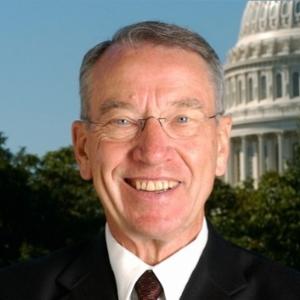The good, the bad, and the ugly in the world of domestic drug policy this year.
It's expected to sail through the House and be signed into law by President Trump.
Marijuana's lanky, straight-laced country cousin is about to get legal.
Multi-drug combinations prove particularly deadly.
A Nebraska medical marijuana initiative campaign gets underway, New Jersey and Pennsylvania announce expansion plans, and more.
Congress has passed a bill to legalize hemp, the CDC issues a new report on overdose deaths, St. Vincent and the Grenadines legalizes medical marijuana, and more.
A national coalition of civil rights, labor, and civic groups calls for descheduling marijuana; New Jersey isn't quite there yet, France takes a step toward allowing medical marijuana, and more.
The governors of New Hampshire and New York have very different views on marijuana legalization, New Jersey doubles the number of dispensaries, a new report examines drug treatment for criminal offenders in Utah, and more.
The Senate is finally taking up the prison and sentencing reform bill, New Jersey's legalization push is stalled until next year, New Zealand is set to vote on legalizing marijuana in 2020, and more.
A major sentencing reform bill takes a major step toward becoming law, a New Mexico medical marijuana producer is suing the state over rules and fees, and more.
Getting caught driving high in Michigan is NOT a ticketable offense. You will go to jail and face either misdemeanor or felony charges.
This is a year that just about everybody is eager to see come to an end, but when it comes to drug policy, 2018 hasn't been half-bad, at least in the US. (Check back next week for our Top International Drug Policy Stories.)
We've seen marijuana legalization spread further, we're on the verge of seeing Congress pass major sentencing reform legislation, and the ban on domestic hemp cultivation is coming to an end, among other things.
A lot went on in drug policy in 2018. Here are eight stories that helped define the year:
1. Overdose Deaths Remain Unconscionably High But Appear to Have Leveled Off

That's enough fentanyl to kill you. It killed thousands this year. (dea.gov)
The nation's fatal drug overdose crisis is far from over, but it now looks like it at least didn't get any worse this year. Driven in large part by the rise of fentanyl, overdose deaths reached a stunning 72,000 in 2017, a figure ten times the number in 1980 and double that of only a decade ago.
But preliminary reports on the 2018 overdose numbers suggest that this may be the year the crisis began to ease. In June, the Centers for Disease Control and Prevention released provisional data showing that overdose deaths had declined for six straight months, dropping 2.8 percent from their 2017 peak. That report also found that opioid overdose deaths had declined by 2.3 percent.
With both heroin and prescription opioid deaths declining, fentanyl has emerged as the most common drug involved in overdoses, being implicated in about a quarter of all drug overdose deaths. While the apparent decline in opioid overdose deaths this year is good news, the recent increases in cocaine and methamphetamine overdose deaths is not. And while any break in a years-long climb in overdose deaths is certainly welcome, another 70,000 or so Americans will still have died from them this year. We have a long, long way to go.
2. Safe Injection Sites Draw Nearer, But Feds Fire Warning Shots
Safe injection sites -- also known as supervised consumption sites, among other names -- where drug users can consume their doses under medical supervision and with an opportunity to engage with social services are a proven harm reduction intervention. More than a hundred cities around the world, mainly in Europe, Canada, and Australia have resorted to such facilities as a means of providing better outcomes, not only for drug users but also for the communities in which they live.
There are no legally permitted safe injection sites in the United States (although some underground ones are reportedly operating in Seattle, and there may be more in hiding), but this year saw mounting pressure and serious efforts to get them up and running in a number of American states and cities. It also saw mounting resistance from federal officials.
At the state level, California, Colorado, Missouri, and New York all saw safe injection site bills filed. Only the bill in California made it out of the legislature, but to the great frustration of reformers, it was vetoed by Gov. Jerry Brown (D), who cited long outdated beliefs about substance use in his veto message. Still, the fact that bills are being filed shows the issue is gaining momentum.
The momentum is even stronger among a handful of major cities. Denver, New York City, Philadelphia, and Seattle have all taken steps to clear the way for safe injection sites this year, although none are yet in place.
While like California's Gov. Brown, some state and local level political figures are hesitant to embrace them, a major reason none is yet in place is federal hostility. As the clamor for the facilities grows louder, so does opposition from the Trump administration. As Denver publicly pondered opening one, the local DEA and the US Attorney loudly warned they would be illegal, and the Philadelphia US Attorney did the same thing. Early in the year, the DEA in Washington issued a warning against safe injection sites, and in August, Deputy Attorney General Rod Rosenstein authored an op-ed in the New York Times issuing similar dire threats.
3. A Major Federal Sentencing Reform Bill Is Set to Pass

A rare example of bipartisanship on the Hill. (Creative Commons)
The first major federal sentencing reform bill in eight years is now one vote away from passing Congress. The bill, known as the First Step Act (
S.3649), is the culmination of years of work by the likes of Senate Judiciary Committee Chairman Charles Grassley (R-IA) and Sen. Dick Durbin (D-IL), and includes prison reform language as well as provisions that would reduce sentences for certain drug offenses. It very nearly died earlier this month when Senate Majority Leader Mitch McConnell (R-KY) announced he would not bring it to a Senate floor vote, but under broad pressure, including from President Trump, McConnell relented, and the bill passed the Senate Tuesday
The sentencing reforms include retroactivity for the Fair Sentencing Act (the 2010 law that reduced the crack/powder cocaine sentencing disparity), allowing the potential release of around 2,600 people; expansion of the "safety valve" allowing judges more discretion to sentence beneath mandatory minimum sentences; reform of the "three strikes" law, reducing the "second strike" mandatory minimum of 20 years to 15 years, and reducing the "third strike" mandatory minimum of life-in-prison to 25 years.
The late word is that the bill will pass the House easily, but that hasn't happened as of this writing. If and when it does, the country will have taken a significant step toward a more just and humane federal criminal justice system. The passage has also drawn major media attention as a rare example of bipartisanship in Washington today.
4. Marijuana Legalization Advances in the States
At the beginning of the year, marijuana for adult recreational use was legal in eight states, all in the West or New England and all thanks to the initiative process. As 2018 comes to a close, that number has jumped to ten, with Vermont in January becoming the first state to legalize it through the legislature and Michigan in November becoming the first Midwest state to legalize it.
The initiative process is available in only half the states, and when it comes to legalizing weed, the low-hanging fruit has already been picked. A legalization initiative in conservative Nebraska went down to defeat this year, and remaining initiative states like the Dakotas, Nebraska, Oklahoma, and Arkansas are among the most socially conservative and least likely to free the weed. But prospects are rosier in initiative states Arizona, Missouri, and Ohio. We are likely to see pot on the ballot in all three in 2020.
Vermont remains the sole state to legalize it legislatively, but a handful of states edged ever closer close this year. New Jersey Gov. Phil Murphy (D) wanted pot legalized in his first 100 days. That didn't happen, and legalization hasn't gotten through the legislature yet, but there is a small chance it could still happen this year and a very good chance it will be a done deal by early next year. Legislatures throughout the Mid-Atlantic states and Northeast grappled with the issue, laying the groundwork for next year and the year beyond, and just this week, New York Gov. Andrew Cuomo (D) called for legalization next year. The long march continues.
5. Marijuana Is Still Federally Illegal, But the Crackdown Never Came
As the year comes to end, legal weed is still here and Jeff Sessions isn't. President Trump's first attorney general was an avowed foe of marijuana (as well as drug and criminal justice reform in general), but despite rescinding the Obama-era Cole memo, which basically told federal prosecutors to leave state law-abiding pot businesses alone, the much-feared crackdown on the industry never came.
Federal prosecutors, for the most part, continue to view legal marijuana businesses as a low priority, especially when faced with much more serious drug problems, such as the opioid overdose epidemic. But Sessions was also undercut by his own boss, who in April arranged a deal with Colorado Republican Sen. Cory Gardner in which he agreed to support a bill protecting states that have broken with federal pot prohibition in return for Gardner's allowing Justice department appointments to move forward.
This year saw a plethora of federal marijuana reform bills, but with Republican leadership in both houses firmly opposed, the Capitol was where marijuana reform went to die. With Democrats in control of the House next year, things promise to be different next year, although the GOP-led Senate will remain an obstacle. But with pot consistently polling in the 60s, those Republican senators may grudgingly start coming on board.
6. Marijuana Legalization is Nice, But We Need Social Justice, Too
This year saw social justice concerns around marijuana legalization move front and center in two distinct ways: demands for the expungement of marijuana arrest records for people whose offenses are no longer crimes and demands for restorative racial justice from communities that have suffered the brunt of the war on drugs.
The year started with two major West Coast cities, San Francisco and Seattle, leading the way on expungement. The, in September, California became the first state to put state-level automatic expungement into effect. Delaware and Rhode Island, which have both decriminalized but not legalized pot, also passed expungement bills this year. Expungement is also a contentious issue in the ongoing battle to get legalization passed in New Jersey.
After a half-dozen years of legalization and well-heeled white guys making bank off legal weed, the call for racial justice, whether in terms of set-asides to guarantee minority participation in the industry or for funding streams aimed at restoring drug war-ravaged communities, is growing too loud to be ignored. This is an ongoing struggle now being played out not only in pot-legal states, but especially in states on the cusp of legalization. Moving forward, it's likely that every successful state legalization bill is going to have to address issues of social and racial justice. As they should.
7. Industrial Hemp Becomes Federally Legal

The sun rises on the American domestic hemp industry. (votehemp.org)
Finally, the absolutely most ridiculous aspect of federal marijuana prohibition is dead. Recreational marijuana's country cousin, hemp can't get anyone high, but is extremely useful in a broad range of industries, from foods to textiles and beyond. Thanks to a lawsuit from hemp interests more than a decade ago, hemp could be imported for American firms to use in their products, but because the DEA refused to recognize any distinction between hemp and recreational marijuana, American farmers were forced to stand on the sidelines as their competitors in China, Canada, and other countries raked in the rewards.
But having a hemp-friendly senator from a hemp-friendly state allowed hemp legalization to move this year. Senate Majority Leader Mitch McConnell (R-KY) actually fought for the hemp bill, shepherding it into the must-pass farm appropriations bill and keeping it in there through negotiations with the House. President Trump has signed the farm bill, including the hemp provision, into law.
8. Here Come the 'Shrooms
Initiative campaigns to legalize or decriminalize the use and possession of psilocybin-containing magic mushrooms began popping up in 2018. Actually, the first state-level initiative came last year in California, but this past summer it failed to qualify for the fall ballot.
Right now, there are two psilocybin initiatives in the signature-gathering phase, a municipal initiative in Denver that would decriminalize the use, possession, and cultivation of psilocybin-containing mushrooms, and the statewide Oregon Psilocybin Service Initiative, which would decriminalize possession of psilocybin, allow magic mushrooms to be grown with a license, and would allow for therapeutic use of psilocybin. The Denver initiative would go before voters in May 2019, while the Oregon initiative aims at the 2020 election.
If psilocybin initiatives follow the pattern set by marijuana legalization initiatives, the first time may not be the charm. But more will follow.
back to top
In a rare display of bipartisanship, the Senate on Tuesday approved a major prison and sentencing reform bill, the First Step Act (S.3649) on a vote of 87-12. The bill now goes back to the House, which is expected to pass it easily, and then to the desk of President Trump, who has vowed to sign it.

Give Chuck Grassley some kudos for shepherding the passage of the bill. (senate.gov)
Introduced by Senate Judiciary Committee Chairman Chuck Grassley (R-IA), and Senators Dick Durbin (D-IL), Mike Lee (R-UT), Cory Booker (D-NJ), Lindsey Graham (R-SC), and Sheldon Whitehouse (D-RI), the bill added significant sentencing reform provisions to a prison reform bill passed earlier by the House.
"The First Step Act will help keep our streets safe and it offers a fresh start to those who've put in the work to get right with the law while paying their debt to society," Grassley said on the Senate floor after the vote. "It also addresses unfairness in prison sentencing and revises policies that have led to overcrowded prisons and ballooning taxpayer expenses."
"I think we showed something which most American people wouldn't have believed -- that a bipartisan group of Senators from across the political spectrum could tackle one of the toughest political issues of our day, assemble an array of support -- left, right, and center -- from members of the Senate as well as organizations devoted to law enforcement as well as civil rights, and at the end of it have something we all felt was a fair product to send over to the House, which I hope will act on this very quickly," Durbin said. "It is, however, the first step. We've got to start thinking about the second step. And we need the help of all of our colleagues when shaping that."
In addition to the prison reform language, the bill's key sentencing provisions include:
- Retroactivity for the Fair Sentencing Act (the 2010 law that reduced the crack/powder cocaine sentencing disparity), allowing the potential release of around 2,600 people;
- Expansion of the "safety valve" allowing judges more discretion to sentence beneath mandatory minimum sentences;
- Reform of the "three strikes" law, reducing the "second strike" mandatory minimum of 20 years to 15 years, and reducing the "third strike" mandatory minimum of life-in-prison to 25 years;
- Eliminate "stacking" for firearm offenses, meaning that prosecutors cannot add sentencing enhancements to individuals who may possess a firearm while committing their first federal offense.
"Passing these reforms has been a team effort years in the making," Grassley continued. "It couldn't have been done without the stalwart commitment by a somewhat unlikely cadre of colleagues and advocates. We've had to compromise to make this possible, to seek to understand the other's point of view. In doing so, I think we made the bill better. And we accomplished something of historic significance that will reduce crime, make our system more just, and improve lives for generations to come."
The First Step Act was backed by a number of law enforcement groups, including the nation's largest police group, as well as 172 former federal prosecutors and sheriffs from 34 states across the country. The National Governors Association, which represents the governors of all 50 states, praised the bill. A broad coalition of conservative and progressive groups along with a host of business leaders and faith-based organizations also support the First Step Act.
For progressives and drug reformers, though, the bill is indeed only a first step. It does nothing, for example, to address the plight of people sentenced to life in prison for drug offenses, and that leaves reformers offering only qualified praise.
"The Senate's version of the legislation, while far from perfect, includes crucial sentencing reforms that safely reduce the footprint of the federal criminal justice system from the front end," said Ed Chung, vice president for Criminal Justice Reform at the Center for American Progress. "Additionally, the Senate added important checks on the US Department of Justice as it creates a risk and needs assessment and a system of programs and education in the Bureau of Prisons."
"This is a bittersweet moment," said Michael Collins, director of national affairs at the Drug Policy Alliance. "The bill represents progress and we should celebrate the release of thousands of people serving disproportionately long sentences, but at the same time the bill leaves far too many people behind. It's a tough compromise for us and we must keep fighting for much deeper systemic changes."
back to top
The Senate on Tuesday and the House on Wednesday gave final approval to the massive 2018 Farm Bill, including a provision that will end an eight-decade ban on industrial hemp, that non-psychoactive but extremely useful member of the cannabis family. President Trump is expected to sign the bill into law.

The sun rises on a new chapter for hemp in America (votehemp.org)
Even though you could smoke a hemp joint the size of a telephone pole and get nothing more than a cough and a headache, for decades the DEA has refused to recognize any distinction between hemp and marijuana that gets you high. That meant that American farmers could not legally produce hemp for a hemp products industry
worth $820 million last year and expected to break the billion-dollar mark this year.
That's right: Thanks to a federal court case brought against the DEA more than a decade ago, farmers in countries where hemp is legal can export it to the US, and companies in the U.S. can turn that hemp into a variety of products ranging from foods to clothing to auto body parts to building materials and beyond, but US farmers can't grow it. That's about to change.
"For too long, the outrageous and outdated ban on growing hemp has hamstrung farmers in Oregon and across the country," said Sen. Ron Wyden (D-OR). "Hemp products are made in America, sold in America, and consumed in America. Now, hemp will be able to be legally grown in America, to the economic benefit of consumers and farmers in Oregon and nationwide."
Wyden and fellow Oregonian Sen. Jeff Merkley (D) teamed up with Kentucky Republican Sens. Rand Paul and Mitch McConnell to sponsor the bill and guide it through Congress. McConnell's role as Senate Majority Leader certainly didn't hurt the bill's prospects.
As well as guiding the bill forward, McConnell took to the Senate floor on various occasions to support it. In his statement on the passage of the farm bill, he touted "the new opportunities available with the full legalization of industrial hemp."
"Finally we are recognizing industrial hemp for the agricultural product it is," Merkley said. "This is a cash crop that hasn't been allowed to meet its full economic potential because of outdated restrictions. When I visited a hemp farm mid-harvest, I saw firsthand the enormous potential of this diverse crop under the limited 2014 farm bill. This full legalization provides economic opportunity for farmers across rural Oregon and rural America -- good for jobs, good for our communities, and just good common sense."
The bill defines hemp as cannabis with 0.3 percent THC or less by dry weight and removes it from the Controlled Substances Act (CSA). Regulatory authority over hemp moves from the DEA to the Agriculture Department. The definition of hemp in the bill includes all parts of the plant and specifically lists cannabinoids, including CBD, that are removed from control of the CSA. The bill also includes funding and authorization for research and authorizes crop insurance for hemp farmers.
The inclusion of CBD has the potential of greatly expanding the size of the legal hemp industry. Hemp-based CBD wellness products -- a category that didn't exist five years ago -- already account for nearly a quarter of the domestic hemp market, and the Hemp Business Journal predicts they will account for nearly $650 million worth of sales by 2022, becoming the single largest sector of the hemp market.
It's been more than 40 years since Jack Herer ignited the marijuana movement's interest in hemp with The Emperor Wears No Clothes: Hemp and the Marijuana Conspiracy. Herer is long gone -- he died at age 70 in 2010 -- but the movement he launched has now reached the promised land. The single most ridiculously unjustifiable aspect of federal marijuana prohibition has been killed; now it's time to finish the job by ending federal marijuana prohibition.
back to top
While there are signs that the country's drug overdose crisis may have plateaued, the number of people dying from drug overdoses continues to be unconscionably high. Shockingly, the number of overdose deaths has increased tenfold since 1980 when there were only 6,000 nationwide and nearly doubled just in the past decade to more than 72,000 last year.

The number of drug overdose deaths remains unconscionably high.
Now, in
a new report, the Centers for Disease Control and Prevention (CDC) sheds some new light on precisely which drugs are most implicated in these deaths. While the report examines overdose deaths from 2011 to 2016, we're going to zero in on the 2016 data to get as close as possible to the present.
Three drug classes are involved: prescription and non-prescription opioids, benzodiazepines, and stimulants. Often, fatal overdoses involve more than one drug, whether it is drugs in the same class (heroin and fentanyl) or combinations of drug classes (heroin and benzos or fentanyl and cocaine.
Before we get into the number-crunching, it's worth taking a moment to consider that each single overdose death is a tragedy. A human life has been lost prematurely, the potential snuffed out, and friends and family members suffer greatly. It doesn't have to be that way. While we're going to look at deadly drugs, it behooves us to remember that many of these deaths are a function not just of the drugs themselves, but of drug prohibition.
People overdose on fentanyl, for example, because in a black market there is no packaging, no quality control, no dosage information to inform them of just how powerful is that powder they're snorting or injecting. Added to heroin or crafted into counterfeit prescription opioids by unscrupulous black market operators, fentanyl kills people who didn't even know they were taking it. Even more insidiously, fentanyl is turning up in black market cocaine and methamphetamine, whose users aren't even looking for an opioid high and haven't developed any tolerance to them (although some may be speedballing, that is, taking both an upper and a downer at the same time.
That said, here are the drugs making the greatest contributions to the 63,352 overdose deaths in 2016. (The numbers add up to more than that figure because in some overdoses, more than one drug is mentioned.)
1. Fentanyl -- 18,335
In 2016, fentanyl vaulted into first place in the deadly drug sweepstakes. As recently as 2011, the synthetic opioid was in 10th place, with some 1,660 overdose deaths attributed to it, but the death toll has increased more than tenfold in just five years. More than two-thirds of fentanyl overdose deaths also involved other drugs, and fentanyl is involved in more than a quarter (28.5 percent) of all overdose deaths, including 40 percent of cocaine overdose deaths and nearly a third (32 percent) of heroin deaths.
2. Heroin -- 15,961
At the tail end of the prescription opioid phase of the current overdose crisis in 2011, more people died from oxycodone than heroin, but between 2012 and 2015, heroin resumed its role as the leading opioid linked to fatal overdoses, only to be overtaken by fentanyl in 2016. The vast majority -- 70 percent -- of people who died from heroin were also using other drugs. More than a third were also using fentanyl, while nearly a quarter (23.8 percent) were also using cocaine. As prescription opioids became more difficult to obtain, the number of people dying from heroin skyrocketed, nearly tripling in the five years ending in 2016.
3. Cocaine -- 11,316
Cocaine deaths rose dramatically beginning in 2015 and by 2016 the annual death toll was double what it had been five years earlier. With bumper crops in Colombia in recent years, cocaine is cheap and plentiful. It is also increasingly being cut with fentanyl, which is implicated in 40 percent of cocaine deaths, and mixed with heroin, which is implicated in a third of them. Cocaine is named in 17.8 percent of all overdose deaths.
4. Methamphetamine -- 6,762
Meth-related overdose deaths tripled between 2011 and 2016, a dramatic increase in what has become America's forgotten drug problem. In 2016, slightly more than one out of ten drug overdose deaths involved meth. Of the top ten overdose drugs, meth is by far the one most likely to have been the sole drug implicated in the death, but even so, fentanyl was implicated in one out five meth deaths and heroin in one out of ten.
5. Alprazolam -- 6,209You know it as Xanax. This short-acting benzodiazepine is a favorite of stimulant users seeking to take the edge off, but also often forms part of a sedative cocktail with opioids or other benzos. About three-quarters of Xanax overdose deaths involve other drugs, with fentanyl, heroin, and oxycodone each involved in about one-quarter of Xanax deaths. Xanax deaths increased by about 50 percent over the five year period.
6. Oxycodone -- 6,199
It's most infamous formulation is OxyContin, but it is also sold as Roxicodone, Xtampza ER, and Oxaydo. It may have been the primary killer opioid a decade ago, but has chugged along at around 5,000 deaths a year before going over 6,000 in 2016. Four out of five people who overdose on oxycodone were also using another drug, most often Xanax (25.3 percent), followed by fentanyl (18.6 percent).
7. Morphine -- 5,014
The granddaddy of opioids. Morphine deaths increased slowly beginning in 2011, but have still increased by about 40 percent since then. More than eight out of 10 morphine deaths involve other drugs as well, particularly fentanyl, which is involved in one out three morphine deaths. Cocaine (16.9 percent) and heroin (13.7 percent) are also frequent contributors to morphine ODs.
8. Methadone -- 3,493
Prescribed as an opioid maintenance drug, methadone is one of the few drugs on this list to have seen the number of deaths decline between 2011 and 2016. They've dropped from more than 4,500 a year down to less than 3,500, a drop of roughly a quarter. Nearly three-fourths of all methadone deaths implicate other drugs, with Xanax being most common (21.5 percent), followed by fentanyl (15.1) and heroin (13.8).
9. Hydrocodone -- 3,199
This semi-synthetic opioid is sold under a variety of brand names, including Vicodin and Norco, and has proven remarkably stable in its overdose numbers. Between 2011 and 2016, it never killed fewer than 3,000 or more than 4,000, almost always (85 percent of the time) in concert with other drugs. Xanax was implicated in one-quarter of all hydrocodone overdoses, followed by oxycodone (17.2 percent) and fentanyl (14.9 percent).
10. Diazepam -- 2,022
The most well-known diazepam is Valium. Like Xanax, this anti-anxiety drug can be used to take the edge off a stimulant binge, but it's not coke heads and speed freaks who are dying from it. In more than nine out of 10 fatal Valium overdoses, other drugs are involved, most commonly the opioids oxycodone and fentanyl, each implicated in about a quarter of the deaths, and heroin, implicated in a fifth.
Using these drugs is dangerous. Using them under a prohibition regime is even more so. Users don't always know what they're getting, and that lack of knowledge can be fatal. If you're going to be messing with these substances, be extremely cautious. Try a test dose first. And don't do it alone. Stay safe out there.
This article was produced by Drug Reporter, a project of the Independent Media Institute.
back to top
A Nebraska medical marijuana initiative campaign gets underway, New Jersey and Pennsylvania announce expansion plans, and more.
ArkansasArkansas Delays Dispensary License Announcement. The state Medical Marijuana Commission announced Tuesday it would delay its meeting to announce licenses for state dispensaries. The commission was originally scheduled to meet today but postponed that meeting until January 9. The state plans to allow dispensaries to operate in somewhere between 20 and 32 sites.
Nebraska
Nebraska Medical Marijuana Initiative Campaign Gets Underway. Two state senators, Anna Wishart, and Adam Morfeld, both Democrats from Lincoln, announced last Thursday that they had created a campaign committee to put a medical marijuana constitutional amendment on the 2020 ballot. The committee is Nebraskans for Sensible Marijuana Laws.
New Jersey
New Jersey Just Approved Six More Dispensaries. The state Department of Health on Monday effectively doubled the size of its medical marijuana program by approving six additional dispensaries. There are only six in the state right now. Click on the link to see the list.
New Mexico
New Mexico Sued Over Edibles Rules. The state's largest medical marijuana producer has filed a lawsuit against the state health department over regulations governing edibles, salves, lotions, and other products infuse with marijuana. Ultra Health argues that the department doesn't have the authority to license legal marijuana manufacturers and that the fees are too high.
Pennsylvania
Pennsylvania Issues Permits for Phase II Medical Marijuana Dispensaries. The Department of Health Tuesday issued 23 dispensary permits for Phase II of the medical marijuana program. The permittees will now have six months in which to become operational before they can begin dispensing medical marijuana. "The permitting of these locations as part of Phase II of the medical marijuana program will ensure more people have access to medical marijuana close to home," Secretary of Health Dr. Rachel Levine said. "Medical marijuana is an essential form of treatment for Pennsylvanians suffering from one of 21 serious medical conditions. This step continues the growth of our scientific, medically-based medical marijuana program."
[For extensive information about the medical marijuana debate, presented in a neutral format, visit MedicalMarijuana.ProCon.org.]
back to top
Congress has passed a bill to legalize hemp, the CDC issues a new report on overdose deaths, St. Vincent and the Grenadines legalizes medical marijuana, and more.

Fentanyl is now the leading drug implicated in overdose deaths, according to the CDC. (Creative Commons)
Colorado Senator Seeks to Add Marijuana Amendment to Criminal Justice Bill. Sen. Cory Gardner (R-CO) will try to add an amendment to the pending prison and sentencing reform bill that would effectively end federal marijuana prohibition. Gardner seeks to add his STATES Act (S.3032) as the amendment. That would allow states to implement their own pot laws without fear of federal interference.
California Regulators Issue Final Version of Regulations. California marijuana regulations are now set after regulators issued their third and final version of the rules. Among the highlights: Deliveries will be allowed statewide, contract manufacturing will be allowed (licensed companies make and package products for unlicensed companies), and regulations for childproof packaging have changed to place the burden on retailers.
St. Paul City Council Backs Resolution To Legalize Recreational Marijuana. Minnesota's second largest city now officially supports marijuana legalization. The city council voted 6-1 Wednesday to support a resolution calling for it. Governor-Elect Tim Walz (DFL) is also down with the idea.
Medical Marijuana
Nebraska Medical Marijuana Initiative Campaign Gets Underway. Two state senators, Anna Wishart, and Adam Morfeld, both Democrats from Lincoln, announced Thursday that they had created a campaign committee to put a medical marijuana constitutional amendment on the 2020 ballot. The committee is Nebraskans for Sensible Marijuana Laws.
Industrial Hemp
Congress Approves Industrial Hemp Legalization. Hemp, hemp, hooray! With a final vote in the House on Wednesday, the 2018 Farm Bill, complete with a provision legalizing domestic hemp production, was approved by Congress and now heads for the president's desk. The bill clears the way for American farmers to participate in what is already a billion-dollar domestic hemp industry that is currently reliant on foreign imports.
Opioids
Fentanyl Now the Most Common Drug in Fatal Overdoses, CDC Reports. Fentanyl is now the most commonly used drug involved in drug overdoses, according to a new report from the Centers for Disease Control and Prevention. Fentanyl was involved in more than 30,000 overdose deaths, while second place heroin was implicated in more than 27,000 deaths. There were some 63,000 overdose deaths in 2016, many of them involving multiple substances.
International
Saint Vincent and the Grenadines Pass Medicinal Marijuana Bill. Saint Vincent and the Grenadines (SVG) has become the first Organization of Eastern Caribbean States Member State to decriminalize marijuana for medical purposes and scientific research. "There is broad recognition and buy-in of the economic benefits this tightly controlled and regulated industry is expected to bring in terms of direct employment, the creation of support industries and foreign investment," said Agriculture Minister Saboto Ceaser.
back to top
A national coalition of civil rights, labor, and civic groups calls for descheduling marijuana; New Jersey isn't quite there yet, France takes a step toward allowing medical marijuana, and more.

still waiting for Garden State marijuana legalization (Creative Commons)
National Coalition Calls for Marijuana to Be Descheduled. A coalition of civil rights groups, labor unions, and other groups is calling not only for Congress to deschedule marijuana but also for it to ensure that communities most harmed by pot prohibition see benefits. The coalition includes AARP, the AFL-CIO, and the League of Women Voters. "Pass legislation de-scheduling marijuana with racial equity and justice reform components," the Leadership Conference on Civil and Human Rights said in a letter outlining priorities for the coalition in the 116th Congress that begins in January.
New Jersey Legalization May Not Happen Until Next Year. Senate President Steve Sweeney and Assembly Speaker Craig Coughlin met with Gov. Phil Murphy (D) Thursday for a closed-door meeting to discuss marijuana legalization but made no decision. The lawmakers now say a vote may not take place until next year, even though Murphy wanted it in the first 90 days of his term.
Asset Forfeiture
New Mexico Appeals Court Rules Against Albuquerque Asset Forfeiture Law. The state Court of Appeals has ruled that Albuquerque's municipal vehicle seizure program is not only pre-empted by the state's law governing seizures, it "completely contradicts it." The city can only seize vehicles after a criminal conviction, the court held. "While the language of the NMFA does not prohibit municipalities from enacting and enforcing criminal forfeiture proceedings, it restricts forfeiture to criminal proceedings, and imposes specific requirements on any criminal forfeiture proceedings that must comport with… the NMFA."
International
France Moves Toward Allowing Medical Marijuana. A government-appointed committee has given initial approval for the use of medical marijuana. The Agency for Drug Safety has concluded that it is "relevant to authorize the use of cannabis for therapeutic purposes for patients in certain clinical situations." If a patient is receiving insufficient relief from current therapeutics, cannabis represents a viable alternative, the committee decided.It said people with chronic pain, cancer patients, epilepsy, and multiple sclerosis sufferers and patients in palliative care could all benefit from cannabis use.
back to top
The governors of New Hampshire and New York have very different views on marijuana legalization, New Jersey doubles the number of dispensaries, a new report examines drug treatment for criminal offenders in Utah, and more.

New York Gov. Andrew Cuomo now says free the weed. (Creative Commons)
Michigan Bill to Ban Marijuana Home Grows Defeated. A bid by the outgoing Republican Senate to undo the will of the voters by amending the state's new marijuana legalization law to ban home cultivation has failed by failing to obtain a supermajority. The bill sponsored by Senate Majority Leader Arlan Meekhof (R-Grand Rapids) needed three-quarters of the vote to pass. Meekhof is sad now: "I'm very disappointed. I knew it would be a heavy lift," he said. "What we're going to be allowing to happen is going to make our society less safe," he complained without explaining how or why.
New Hampshire Governor Rails Against Legalization. Gov. Chris Sununu (R) isn't exactly climbing on the marijuana bandwagon. In remarks over the weekend, he said preventing legalization would be one of the biggest fights for his administration, and that he would "absolutely" veto any legalization bill "regardless of what the language looks like." Still, he was cognizant that the trends aren't on his side. "But then there's a good chance that veto could get overruled," he conceded.
New York Governor Calls for Legalization in 2019. In a Monday speech outlining his 2019 agenda, Gov. Andrew Cuomo (D) called for freeing the weed. "Let's legalize the adult use of recreational marijuana, once and for all," Cuomo said. He is also reportedly exploring whether to make expungement part of the push.
Medical Marijuana
New Jersey Just Approved Six More Dispensaries. The state Department of Health on Monday effectively doubled the size of its medical marijuana program by approving six additional dispensaries. There are only six in the state right now. Click on the link to see the list.
Drug Treatment
Utah Report on Treating People in the Criminal Justice System. The Utah Foundation has released Rethinking Rehabilitation: Improving Outcomes for Drug-Addicted Offenders in Utah. The report explains efforts to address addiction within the context of the justice system in Utah and explores alternative approaches for people struggling with substance use disorders. It also sets forth policy guidance for future action. Among the report's key findings are that efforts to reduce the state prison population appear to be bearing fruit. However, the populations of local jails in Utah are rising, and local facilities often lack the drug treatment programs found in state prisons. Another key finding is that investments in drug rehabilitation for offenders can yield significant savings to taxpayers in the long run.
back to top
The Senate is finally taking up the prison and sentencing reform bill, New Jersey's legalization push is stalled until next year, New Zealand is set to vote on legalizing marijuana in 2020, and more.

Things are getting busy at the Capitol in the last days of the congressional session. (Creative Commons)
Colorado Senator Proposes States' Rights Amendment to Criminal Justice Reform Bill. Sen. Cory Gardner (R-CO) on Monday filed an amendment to the First Step Act (S.3649) that would incorporate some of the protections for state-legal marijuana that he has proposed in his own STATES Act (S.3032). The amendment's prospects aren't rosy, though: It will take unanimous consent to get the amendment considered, meaning an objection from a single senator can kill it.
New Jersey Legalization Bill Delayed Until Next Year. With the final voting day of the legislative session yesterday and no action on marijuana, marijuana legalization is now delayed until next year. Senate President Steven Sweeney (D-Glouchester) said legislators were unable to reach agreement with Gov. Phil Murphy (D) on how and how much to tax it, so they'll be back to work on in January.
Medical Marijuana
Pennsylvania Issues Permits for Phase II Medical Marijuana Dispensaries. The Department of Health Tuesday issued 23 dispensary permits for Phase II of the medical marijuana program. The permittees will now have six months in which to become operational before they can begin dispensing medical marijuana. "The permitting of these locations as part of Phase II of the medical marijuana program will ensure more people have access to medical marijuana close to home," Secretary of Health Dr. Rachel Levine said. "Medical marijuana is an essential form of treatment for Pennsylvanians suffering from one of 21 serious medical conditions. This step continues the growth of our scientific, medically-based medical marijuana program."
Sentencing Reform
Senate Ends Debate on First Step Act, Final Senate Vote Pending. The Senate voted 82-12 Monday to end debate on the prison and sentencing bill, the First Step Act (S.3649), paving the way for a final Senate vote as early as today. Twelve Republicans voted against advancing the legislation despite President Trump endorsing the bill in November: Before the final vote, though, the Senate will take up a number of amendments, including one from conservative Sens. Tom Cotton (R-AR) and John Kennedy (R-AL) that Democrats who favor the bill describe it as a "poison pill."
International
New Zealand Says Voters Will Decide Whether Cannabis Is Legalized. Justice Minister Andrew Little has announced that New Zealanders will vote in a binding referendum in 2020 on whether to legalize marijuana. That would make the country the first to put legalization to a nationwide vote. The latest polls on legalization have support at 46% with 41% opposed, but one analyst said the trend was moving "toward liberalization."
back to top
A major sentencing reform bill takes a major step toward becoming law, a New Mexico medical marijuana producer is suing the state over rules and fees, and more.

Some federal drug prisoners will get relief under the bill passed by the Senate Tuesday. (nadcp.org)
Arkansas Delays Dispensary License Announcement. The state Medical Marijuana Commission announced Tuesday it would delay its meeting to announce licenses for state dispensaries. The commission was originally scheduled to meet today but postponed that meeting until January 9. The state plans to allow dispensaries to operate in somewhere between 20 and 32 sites.
New Mexico Sued Over Edibles Rules. The state's largest medical marijuana producer has filed a lawsuit against the state health department over regulations governing edibles, salves, lotions, and other products infuse with marijuana. Ultra Health argues that the department doesn't have the authority to license legal marijuana manufacturers and that the fees are too high.
Heroin and Prescription Opioids
DC Council Votes to Approves Opioid Treatment Bill. The DC Council voted Tuesday to advance the Opioid Use Disorder Treatment & Safe Access Amendment Act of 2018, legislation that would help curb the overdose crisis in the Nation's capital. The omnibus bill includes provisions that make the temporary emergency measure that decriminalizes drug checking kits permanent, removes restrictions on syringe exchange programs, and expands access to medication-assisted treatment in the District. The bill now goes to the mayor for final approval.
Sentencing Reform
Senate Passes Prison and Sentencing Reform Bill. The Senate approved the First Step Act (S.3649) on a vote of 87-12 on Tuesday. The bill contains prison reform language as well as provisions that would reduce sentences for certain drug offenses, including retroactivity for the Fair Sentencing Act (the 2010 law that reduced the crack/powder cocaine sentencing disparity), allowing the potential release of around 2,600 people; expansion of the "safety valve" allowing judges more discretion to sentence beneath mandatory minimum sentences; reform of the "three strikes" law, reducing the "second strike" mandatory minimum of 20 years to 15 years, and reducing the "third strike" mandatory minimum of life-in-prison to 25 years; and eliminating "stacking" for firearm offenses, meaning that prosecutors cannot add sentencing enhancements to individuals who may possess a firearm while committing their first federal offense. The bill now goes back to the House, which is expected to easily pass, and then to the desk of President Trump, who has vowed to sign it.
back to top
In a story published in the Chronicle AM on December 6, we inadvertently made a bad typo in an important section. The piece said that under the state's new marijuana legalization law, getting caught driving under the influence of marijuana would result in a ticket. THAT IS NOT THE CASE!
Marijuana legalization does not change Michigan's laws against impaired driving. Being caught driving under the influence of marijuana is a serious crime in Michigan. A first offense is a misdemeanor, but later offenses can bring felony charges, along with all the other consequences of an impaired driving conviction.
back to top









